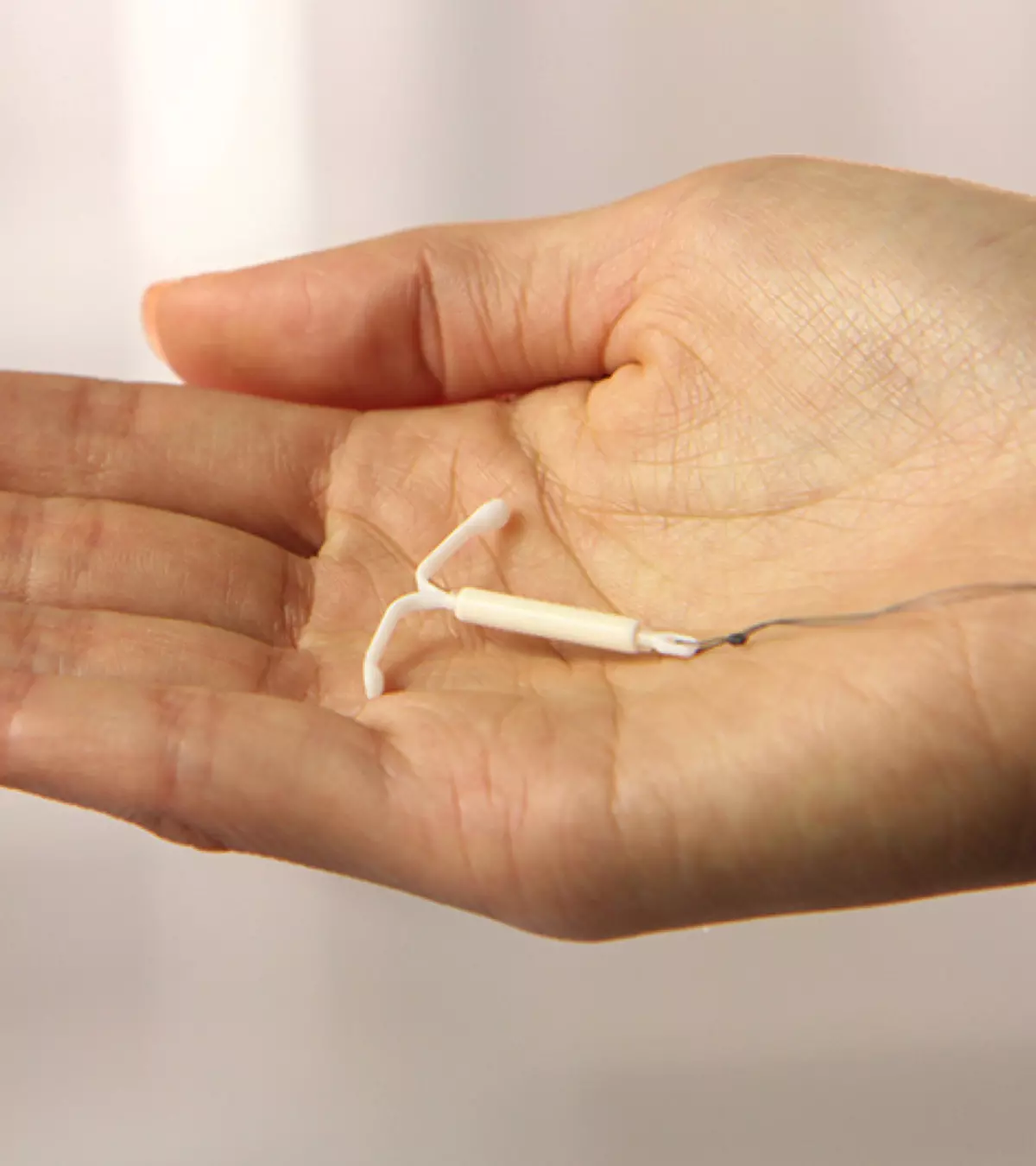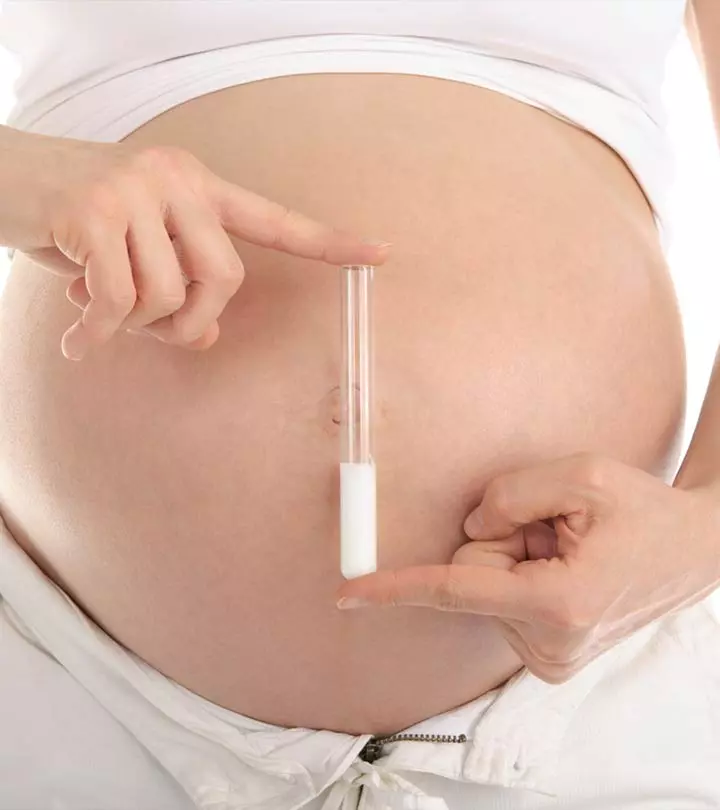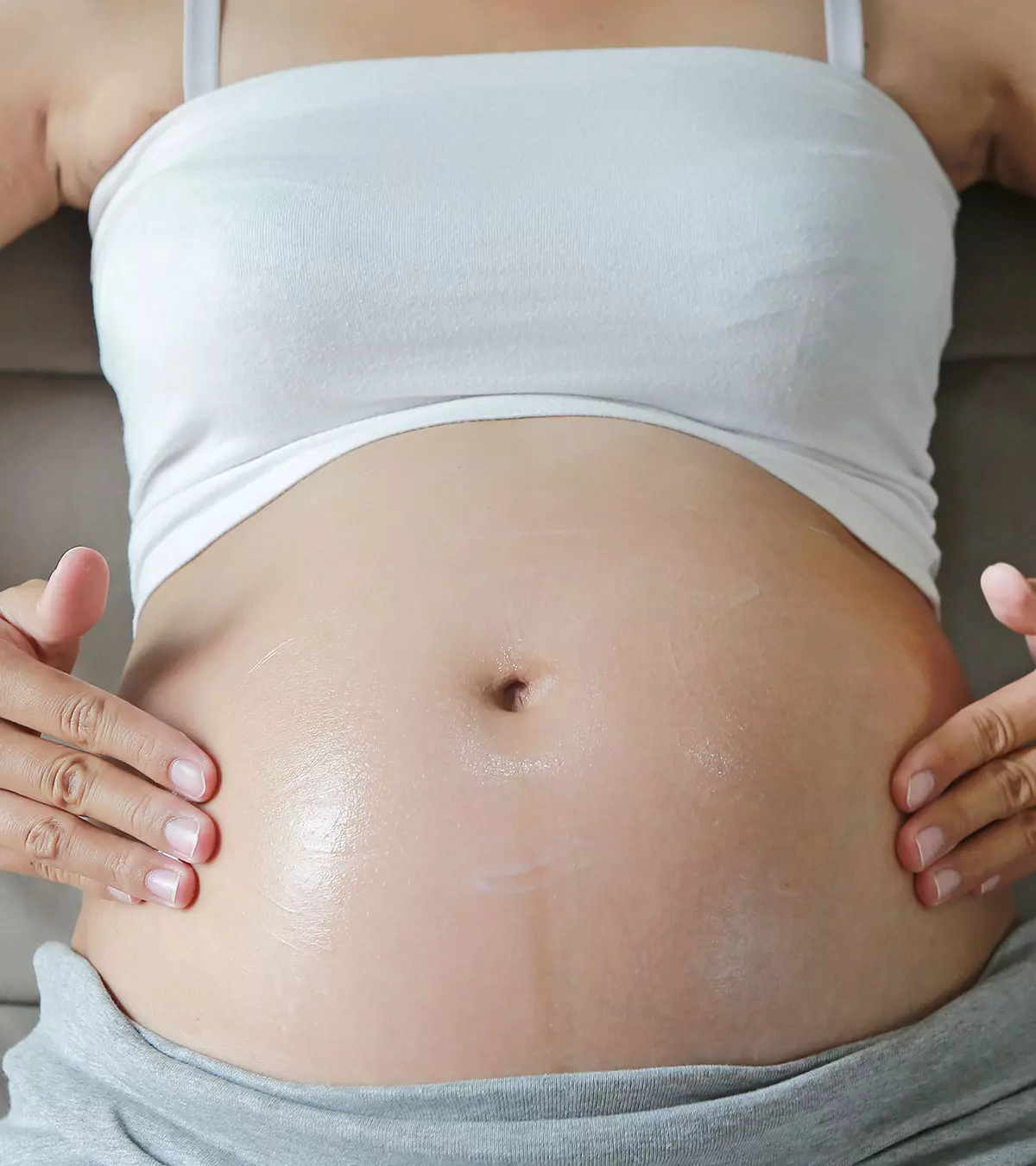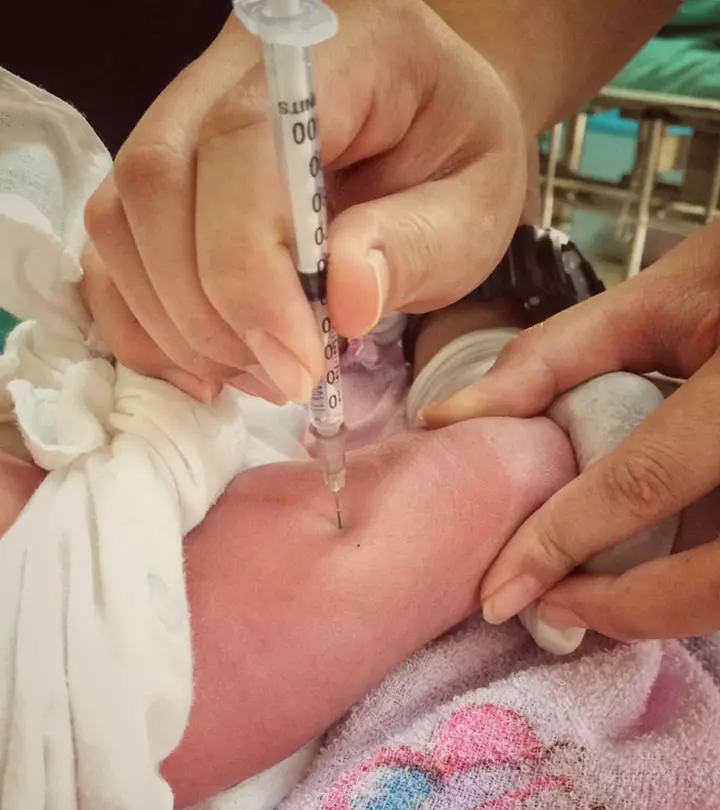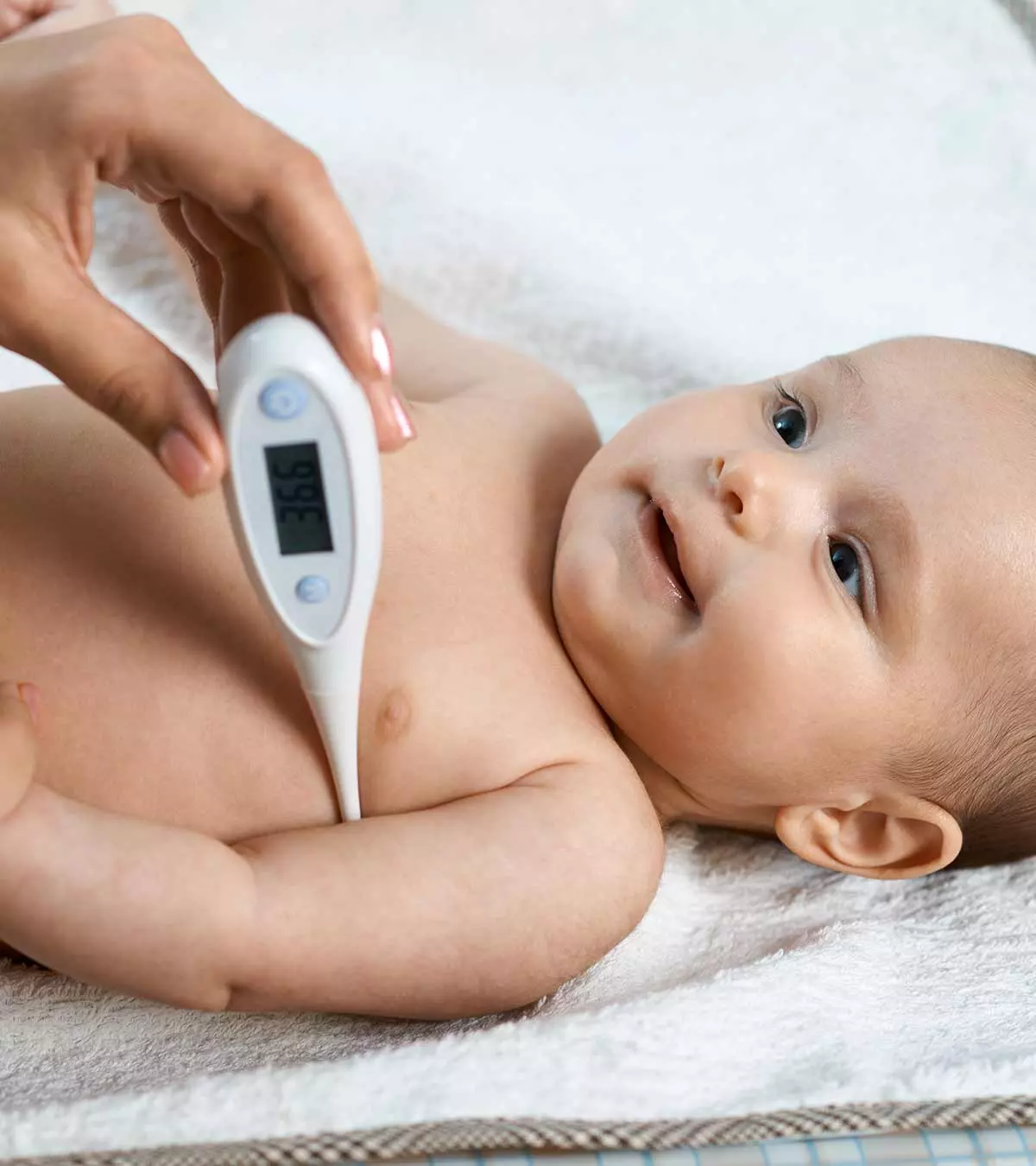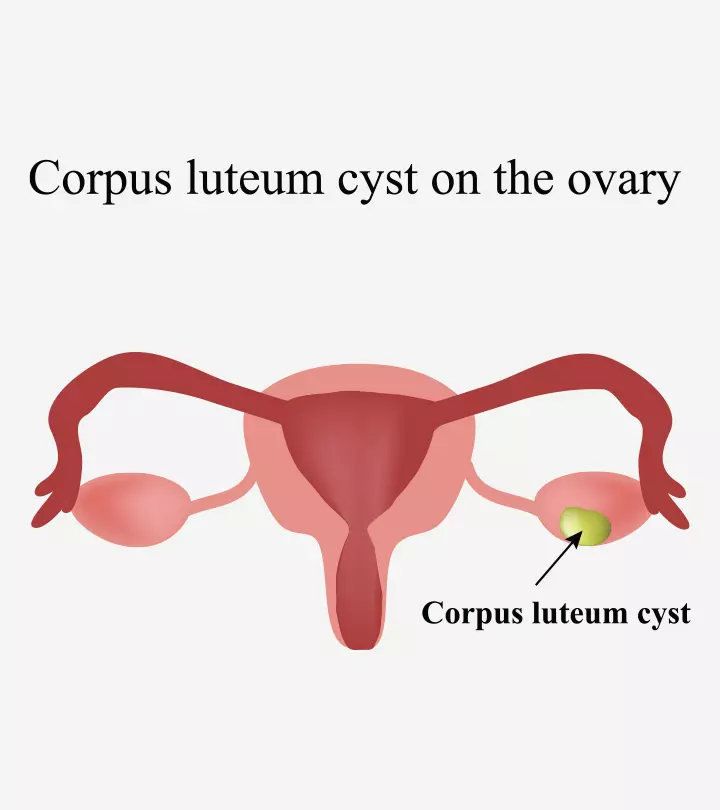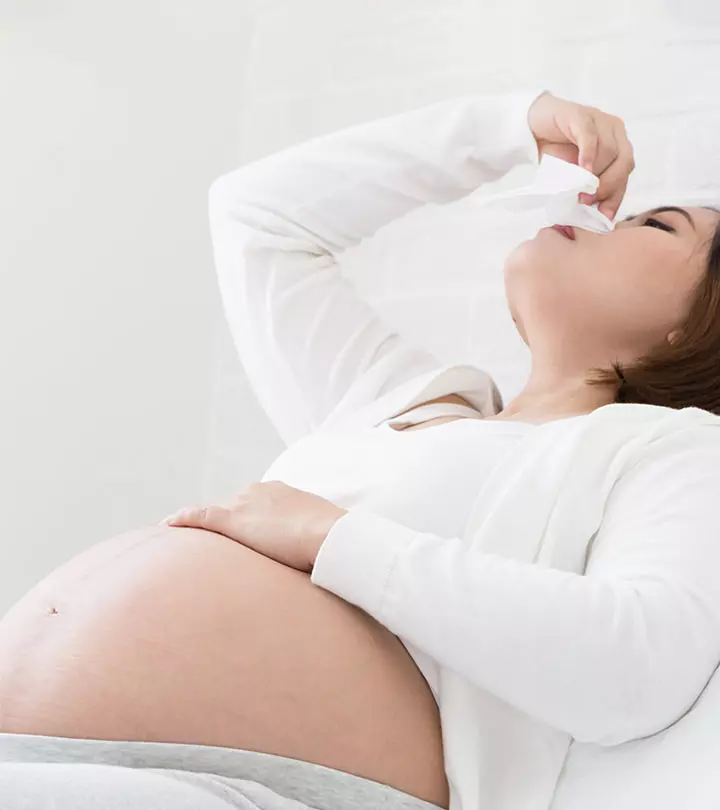
Image: iStock
The sinuses produce mucus that systematically drains into the nose to keep it clean and free of infections. Sinus infection while pregnant may occur when the inner lining of the sinuses or the nasal cavities become inflamed. This blocks the sinus drainage passages (sinus blockage), thus filling the sinus cavity with mucus. The most common manifestation of a sinus infection is nasal congestion leading to pain and breathing difficulty (1) (2).
Sinusitis or sinus infection is one of the most common complications of rhinitis and a frequent problem during pregnancy. Different factors make pregnant women more susceptible to sinusitis, with pregnancy hormones being primary (3). Read on to learn the causes, symptoms, and treatments of pregnancy sinusitis.
Key Pointers
- During pregnancy, the inner lining of the sinuses or nasal cavities can become inflamed, causing sinusitis or sinus infection, which is a common occurrence.
- Factors that can trigger sinusitis during pregnancy include infections, allergies, hormones, and common colds.
- Sinusitis can cause symptoms such as nasal congestion, pressure behind the eyes and on the cheeks, headaches, lack of sleep, and exhaustion.
- Pregnancy-related sinusitis does not affect the unborn child negatively as the placenta shields it from any harmful elements.
- Pregnant women who experience persistent and worsening symptoms, high fever, or green or yellow-colored mucus should seek medical assistance.
How Common Is A Sinus Infection While Pregnant?

Image: Shutterstock
Observational studies show around 20-40% occurrence rate of rhinitis and sinonasal problems in women of childbearing age and 10-30% exacerbation during pregnancy. The most common cause of sinonasal problems that require immediate medical attention is a bacterial infection or bacterial sinusitis (4).
 Quick fact
Quick factWhat Are The Different Types Of Sinus Infections?
Sinusitis is divided into two types according to its severity and progression. They are (5):
- Acute sinusitis: It is also called sinus infection or rhinosinusitis, a short-term inflammation of the sinuses. It can result from a common cold, bacterial infections, or viral infections in the upper respiratory tract.
- Chronic sinusitis: Acute sinusitis takes the form of chronic rhinosinusitis when the sinus inflammation continues for more than three months. This can be due to underlying conditions such as asthma, allergy, or nasal polyps.
 Research finds
Research findsWhat Causes A Sinus Infection During Pregnancy?

Image: Shutterstock
Some possible triggers of a sinus infection during pregnancy include:
- Hormones: The different hormones released during pregnancy, namely, estrogen and progesterone, human growth hormone (HGH), and placental growth hormone (PGH), cause enlargement of the nasal mucous membranes, thus facilitating increased blood flow into the nasal passages. This further leads to swelling of the nasal veins causing congestion or worsening existing sinusitis (6) (7).
- Infections: Although not specific to pregnancy, bacterial, viral, and fungal infections can be one of the contributing factors to sinusitis (1). Due to altered immunity, women may be more susceptible to such infections during pregnancy.
- Allergies: Nasal congestion may also occur due to an allergic reaction, such as allergic rhinitis or other seasonal allergies.
- Common cold: Stuffy nose is one of the common cold symptoms, and a pre-existing cold may increase the risk for sinusitis (8).
What Are The Symptoms Of Sinusitis?

Image: Shutterstock
Besides a stuffy and runny nose and difficulty in breathing, other commonly experienced symptoms of sinus infection are (5) (8):
- Pain accompanied with sinus pressure around the eyes and cheeks
- Headache
- Sleep deprivation
- Postnasal drip (mucus dripping down the throat)
- Bad breath
- Sore throat and cough
- Decreased sense of smell
- Clogged ears lead to reduced hearing
- Fatigue
Can Having a Sinus Infection When Pregnant Hurt the Baby?
Anecdotal evidence states that sinus infection does not cause complications for the baby. Infections during pregnancy, such as sinusitis, do not transmit to the baby because the placenta protects it by filtering out the toxic substances from the body.
When to Contact Your Doctor?
Acute sinusitis or sinus infection can last anywhere between seven and 14 days or as long as three months (5). This usually goes away with sinus congestion medication and home remedies. However, if you are experiencing the following sinus symptoms, seek doctor’s help (3).
- High fever

Image: Shutterstock
- Change in the color of nasal mucus to yellow or green
- Persistence of symptoms that do not subside with time or medication
How Is Sinusitis Diagnosed During Pregnancy?
Based on the symptoms, the doctor may carry out the following tests for diagnosis of sinusitis (9):
- Allergy test: A skin test is carried out to rule out the possibility of an allergic reaction leading to nasal congestion. The allergy test may be carried out against animals, pollen dust, mites, etc.
- Blood test: A blood test detects the body’s immune response towards commonly encountered allergens and checks the immune system’s strength.
- Nasal endoscopy: In this procedure, a flexible tube with a fiber-optic light is inserted into the nose to locate any nasal polyps or abnormalities.
- CT scan: For a detailed image, a CT scan helps visualize the infections, or abnormalities, if any.
What Is The Treatment For Sinusitis During Pregnancy?
Treatment for sinus infection during pregnancy involves administration of medicines including (1) (3):
- Antibiotics for acute sinusitis.
- Acetaminophen, such as Tylenol to alleviate symptoms, such as sinus pain, sinus congestion and headaches.
- Controlled amounts of antihistamines, expectorants, decongestants, and cough suppressants for the treatment of respiratory system infections.
- Saline nasal rinses can help reduce the swelling.
Sinusitis surgery may be recommended if sinusitis becomes chronic and other treatments are ineffective. However, it’s generally not advised to undergo sinus surgery during pregnancy unless it’s an emergency to avert potential risks involved with the procedure.
Note: Consult your healthcare provider before seeking sinus congestion treatment to prevent the medication’s negative effects.
 Be watchful
Be watchfulHow To Alleviate Sinus Congestion Naturally?
Some home remedies for sinus congestion relief include (1) (3):
- Hydration: Drinking plenty of water and fluids, such as citrus juice and broth, can boost your immunity and help clear the congestion.
- Homemade saline drops: Besides the pharmaceutical saline drops, you can make saline drops at home by mixing 1/8tsp of salt and a pinch of baking soda in one cup of warm water.
- Steam inhalation: Take a pan of hot boiling water and breath in the steam by covering your head with a towel. This will clear your stuffy nose and the mucus in your chest. You may also use a humidifier during the night.

Image: Shutterstock
- Gargling: This will treat one of the most uncomfortable symptoms of sinusitis, sore throat. Dissolve a pinch of salt in a glass of warm water and gargle the solution. Honey and lemon are also effective in treating a sore throat.
- Sleep: Sleeping position is also an influencing factor. If you sleep with your head slightly elevated by placing extra pillows under your head, you may find it easier to breathe. Also, good sleep is believed to improve immunity. Nasal strips may help open up the nasal passage.
- Avoid allergens: Since sinusitis can also result from an allergic reaction, it is advisable to avoid common allergens. You may talk to your doctor and ask for pregnancy-safe antihistamines.
- Maintain a healthy diet: A nutritious healthy diet with fruits and vegetables can help boost your immunity.
Lydia Walker, a 16-week pregnant woman shares some home remedies that she follows to battle a sinus infection during pregnancy, “I’ve tried this potent herbal remedy called fire cider, packed with anti-inflammatory and antibacterial ingredients like horseradish, ginger, turmeric, all in apple cider vinegar. It’s fantastic for boosting the immune system. I take a shot at night and in the morning, and it provides immediate relief — I can feel my ears tingling and my sinuses opening up. It’s a natural way to enhance my immune system without medications, aiding in a faster recovery and preventing potential infections(i).”
Frequently Asked Questions
1. What happens if you let a sinus infection go untreated?
Complications of untreated sinus infections are rare but may include abscess or pus accumulation, the infection progressing to the bone (osteomyelitis), and the infection affecting the skin around the eye (orbital cellulitis) (10). In rare cases, the infection may spread to the nervous system and lead to meningitis, an infection of the protective layers of the brain.
2. Which antibiotics may be prescribed for sinusitis during pregnancy?
Antibiotics such as cefprozil (Cefzil) and amoxicillin-clavulanate combination may be prescribed for acute sinus infections in pregnant women. However, you should not self-medicate, especially with antibiotics during pregnancy (1).
3. How long does pregnancy rhinitis last?
The symptoms of pregnancy rhinitis usually go away within two weeks after the baby’s birth (27).
Sinusitis during pregnancy may be common, but this does not take away from it being equally uncomfortable. Talk with your healthcare provider about the treatment options and try some remedies for sinus congestion relief at home.
Infographic: Natural Ways To Deal With Sinus Infection During Pregnancy
Infections, allergies, or hormonal fluctuations may cause sinusitis in pregnant women. Over-the-counter medications should only be used during this time by consulting a doctor. However, some remedies may be effective in minor cases and reduce the need for medications. The infographic below suggests some natural ways to deal with sinus infection symptoms.

Illustration: Momjunction Design Team
Illustration: Sinus Infection While Pregnant: Types Causes And Treatment

Image: Stable Diffusion/MomJunction Design Team
Pregnant and suffering from a sinus infection? Check out this interesting video below to learn how to treat it safely during pregnancy and when to visit the doctor.
Personal Experience: Source
MomJunction articles include first-hand experiences to provide you with better insights through real-life narratives. Here are the sources of personal accounts referenced in this article.
i.16 weeks pregnancy update – Pregnant with my third baby – sinus infection & home remedies.https://www.youtube.com/watch?feature=shared&v=vV0KXAo386Q
References
- Sinus infection while pregnant.
https://americanpregnancy.org/healthy-pregnancy/pregnancy-health-wellness/sinus-infection-while-pregnant/ - Complications, allergic rhinitis.
https://www.nhs.uk/conditions/allergic-rhinitis/ - How to deal with sinusitis in pregnancy.
https://www.health4mom.org/how-to-deal-with-sinusitis-in-pregnancy/ - Gregg Goldstein, M.D. and Satish Govindaraj, M.D, (2012). Rhinologic issues in pregnancy.
https://www.ncbi.nlm.nih.gov/pmc/articles/PMC3404472/ - Sinus disease.
https://www.masseyeandear.org/conditions/sinus-disease - Edyta Dzieciolowska-Baran et al. (2013). Rhinitis as a cause of respiratory disorders during pregnancy.
https://pubmed.ncbi.nlm.nih.gov/22826069/ - Pregnancy rhinitis.
https://www.osmosis.org/answers/pregnancy-rhinitis - Sinus Infection Basics.
https://www.cdc.gov/sinus-infection/about/ - Non-allergic sinusitis.
https://www.cedars-sinai.org/health-library/diseases-and-conditions/n/nonallergic-sinusitis.html - Tomislav Baudoin et al.; (2021); Redefining Pregnancy – Induced Rhinitis.
https://pubmed.ncbi.nlm.nih.gov/32903019/ - Pregnancy rhinitis.
https://www.pregnancybirthbaby.org.au/amp/article/pregnancy-rhinitis#symptoms-last
Community Experiences
Join the conversation and become a part of our nurturing community! Share your stories, experiences, and insights to connect with fellow parents.
Read full bio of Dr. Mona Hardas
Read full bio of Aneesha Amonz
Read full bio of Rebecca Malachi
Read full bio of Dr. Joyani Das










